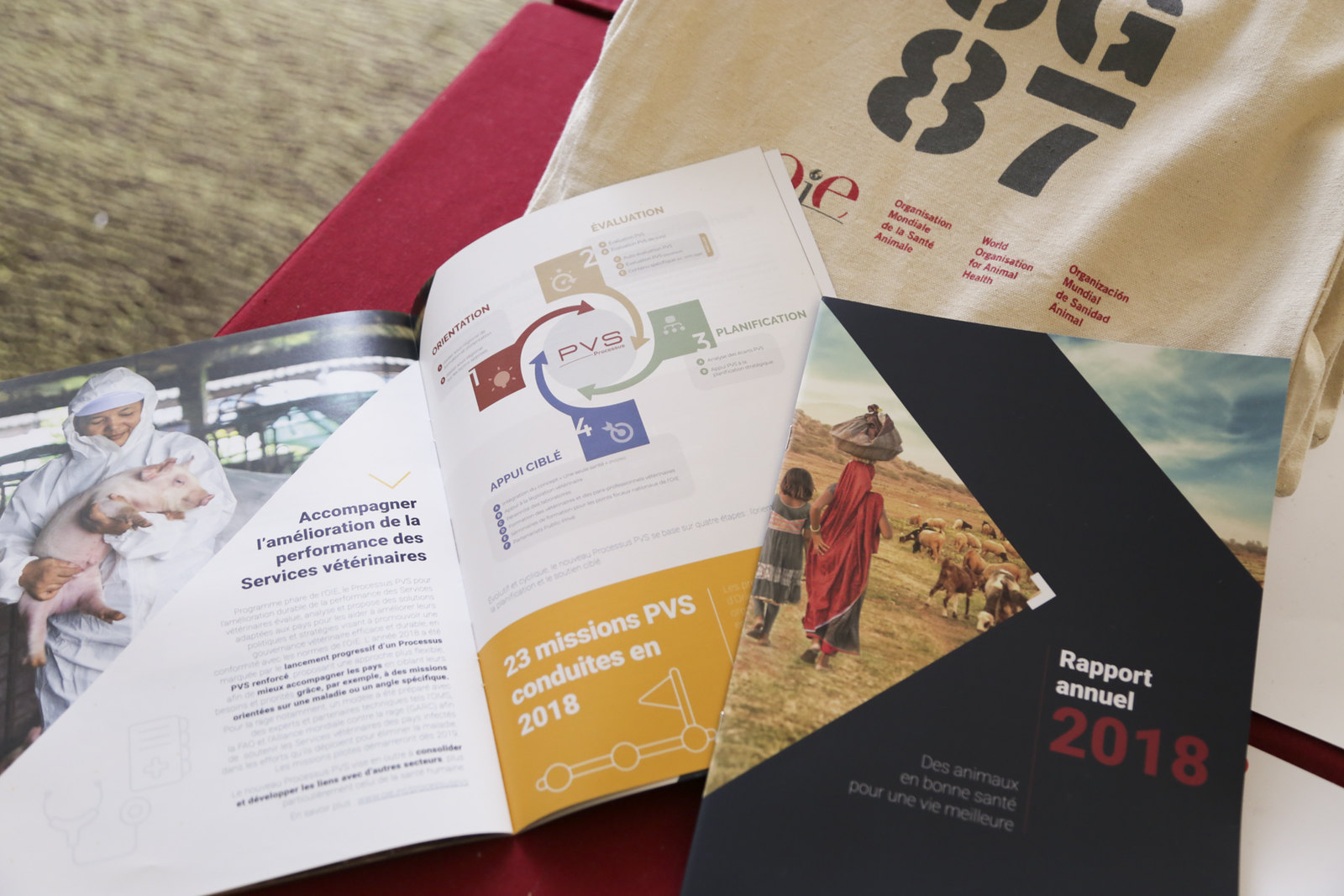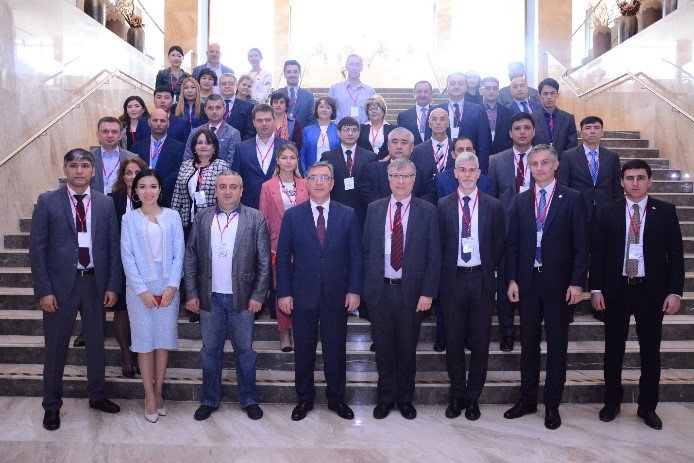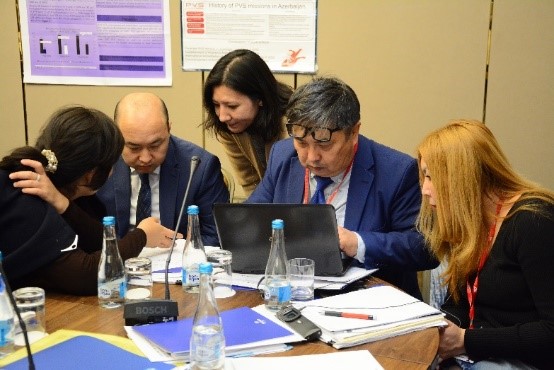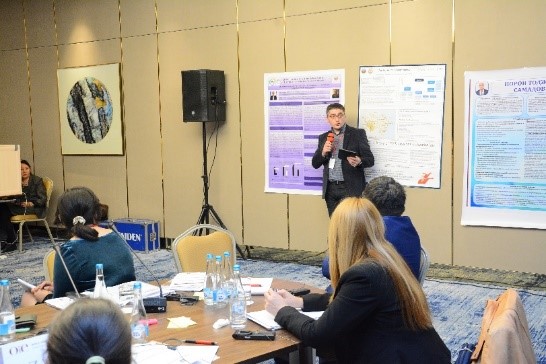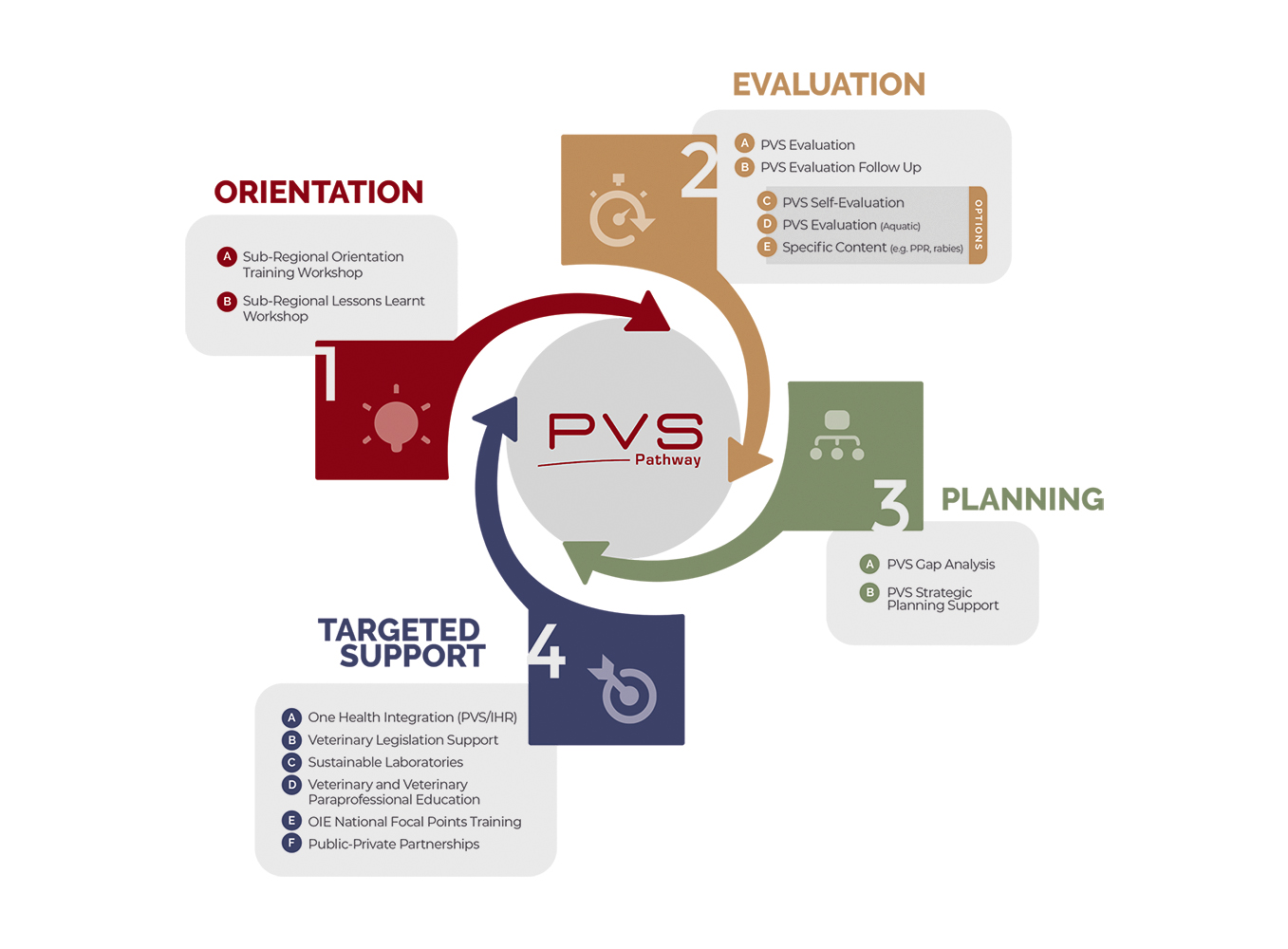
The sub-regional PVS Pathway Orientation Training Workshop, held in Nur Sultan (Kazakhstan) on 8-11 October 2019, is an integral part of the PVS Pathway itself, the “Orientation” component, the fifth of such event workshop under PVS Evolution (Mexico, February 2018; South-Africa, June 2018; Senegal, July 2018 and Bhutan, February 2019). Seen as a key initial step to strengthen Member Country understanding of and engagement with the PVS Pathway, it also aimed at the effectiveness of the preparation/conduct of missions, and of use of the final reports, developing a sub-regional network national PVS “specialists” and expanding the PVS Pathway expert pool to achieve a better geographical, gender and age balance.
11 countries participated in the four-day training (Armenia, Azerbaijan, Belarus, Georgia, Kazakhstan, Kyrgyzstan, Russia, Tajikistan, Turkmenistan, Ukraine and Uzbekistan), together with representatives of the Food Agriculture Organization for the United Nations (FAO), the European Union DG SANTE and the World Bank in Kazakhstan.
An interactive workshop to take on board new “members” in the PVS
The countries had sent participants who are closely involved in the PVS Pathway. It had increased their interest in the topic and has importantly improved the impact of the training. With a group exercises format, where the trainees were asked to put into practice the new concepts given in experts presentations, and the open discussions following, the event effectively helped to develop a network among the participants. Additionally, all countries already involved with the OIE were asked to present a poster with a brief overview of the country’s PVS Pathway engagement.
The participants emphasized the timeliness of the training for the region, relevant for the upcoming missions: the newly trained representatives could be members of the national supporting teams, for any further PVS missions.
A step towards a more effective implementation of the PVS
On the last day, each country shared with the plenary which are their national plans for the future, regarding the PVS Pathway engagement. Most of the countries are interested, in one or another type of PVS missions in the near future. They include in their plans the organisation and preparation of the support team, prior to the missions, involving the participants. With this higher preparedness on the subject, it will, for sure, improve the quality of the missions. Some countries have also expressed their intention to utilise the PVS Self-assessment tool, prior to an organised PVS mission or, simply, to establish where the country might be standing.
